Archaeologists have uncovered a pot of ancient gold coins in the ancient city of Notion, located in western Turkey. This trove of coins is believed to have been buried around 2,400 years ago.
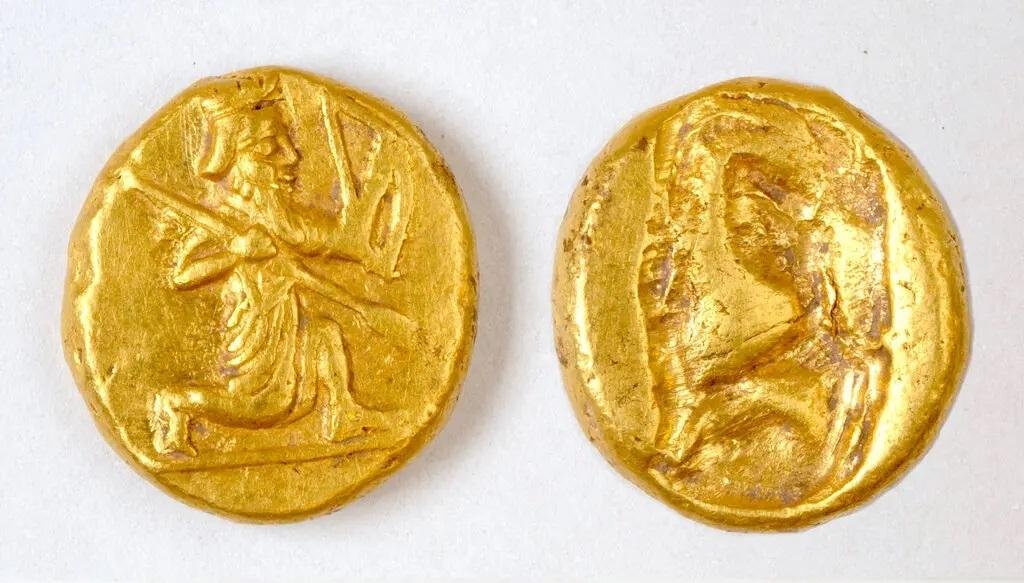
The coins were found beneath a residential home in a hidden room, part of an earlier structure dating back to the third century BCE. Christopher Ratté, a professor of classical studies at the University of Michigan and director of the Notion Archaeological Project, spearheaded the excavation. He stated, “The discovery of such a valuable find in a controlled archaeological excavation is very rare. No one ever buries a hoard of coins, especially precious metal coins, without intending to retrieve it. So only the gravest misfortune can explain the preservation of such a treasure.”
The coins are identified as darics, a type of gold coin issued by the Persian Empire. These coins feature the figure of a kneeling archer, a design element that underscores their Iranian origins. The coins were likely minted in Sardis, approximately 60 miles northeast of Notion, which served as the capital of the Persian satrapy of Lydia during the height of the Persian Empire. The daric’s design remained consistent from the late sixth century BCE until the conquest of the Persian Empire by Alexander the Great in 330 BCE.
The presence of these coins in Notion suggests they were used to pay mercenary soldiers. According to the Greek historian Xenophon, a single daric was equivalent to a soldier’s monthly wage.
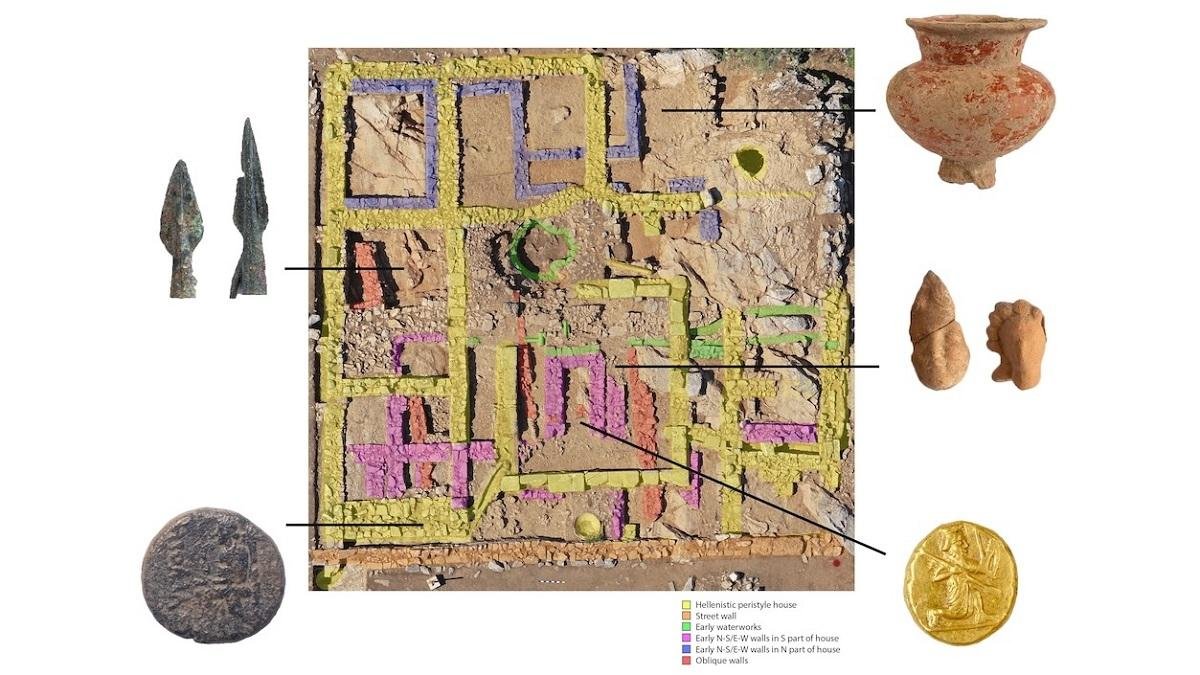
The context of the coins’ burial points to a period of significant political and military upheaval. Between 430 and 427 BCE, Notion was occupied by a group of Persian sympathizers and mercenaries. During this time, Athenian general Paches killed pro-Persian mercenaries, leading to the expulsion of Persian sympathizers and the reorganization of the city under Athenian control. This sequence of events could explain why the treasure was buried and never retrieved.
Notion, situated in a contested frontier zone, frequently shifted between Persian and Greek control. This era of instability is reflected in the archaeological record and historical accounts. For instance, in 427 BCE, Thucydides recounts how Paches attacked a troop of pro-Persian mercenaries in Notion, following which the city was reorganized under Athenian supervision.
The excavation at Notion, initiated in 2022 by a team from the University of Michigan, Sinop University, and the Turkish Ministry of Culture and Tourism, continues to reveal insights into the city’s past.
Ratté noted that most hoards of darics have been found by looters, who lack concern for historical context. “An archaeological find without contextual information is like a person suffering from amnesia—a person without memories. It is still interesting and important, but the loss of knowledge is incalculable,” he said.
The coins are currently housed at the Ephesus Archaeological Museum in Selcuk, Turkey, along with other artifacts recovered from the site.



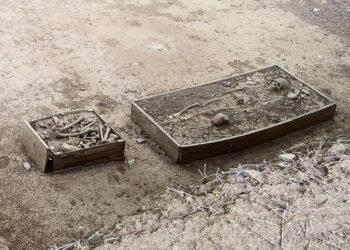
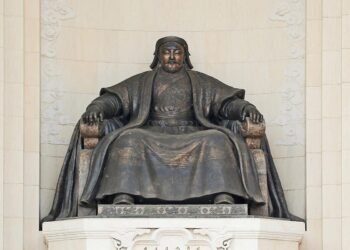

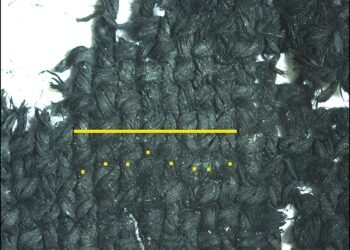
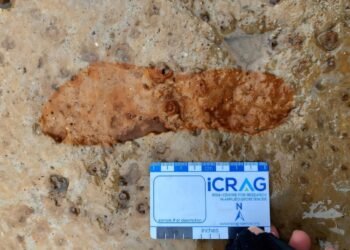
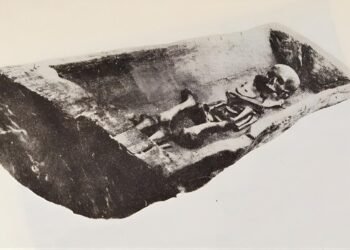














Disclaimer: This website is a science-focused magazine that welcomes both academic and non-academic audiences. Comments are written by users and may include personal opinions or unverified claims. They do not necessarily reflect the views of our editorial team or rely on scientific evidence.
Comment Policy: We kindly ask all commenters to engage respectfully. Comments that contain offensive, insulting, degrading, discriminatory, or racist content will be automatically removed.
Fascinating stories, I looked up this page, checking for a photo in The Times of Zeus In Turkey. I shall keep checking back for more great stories of our past.